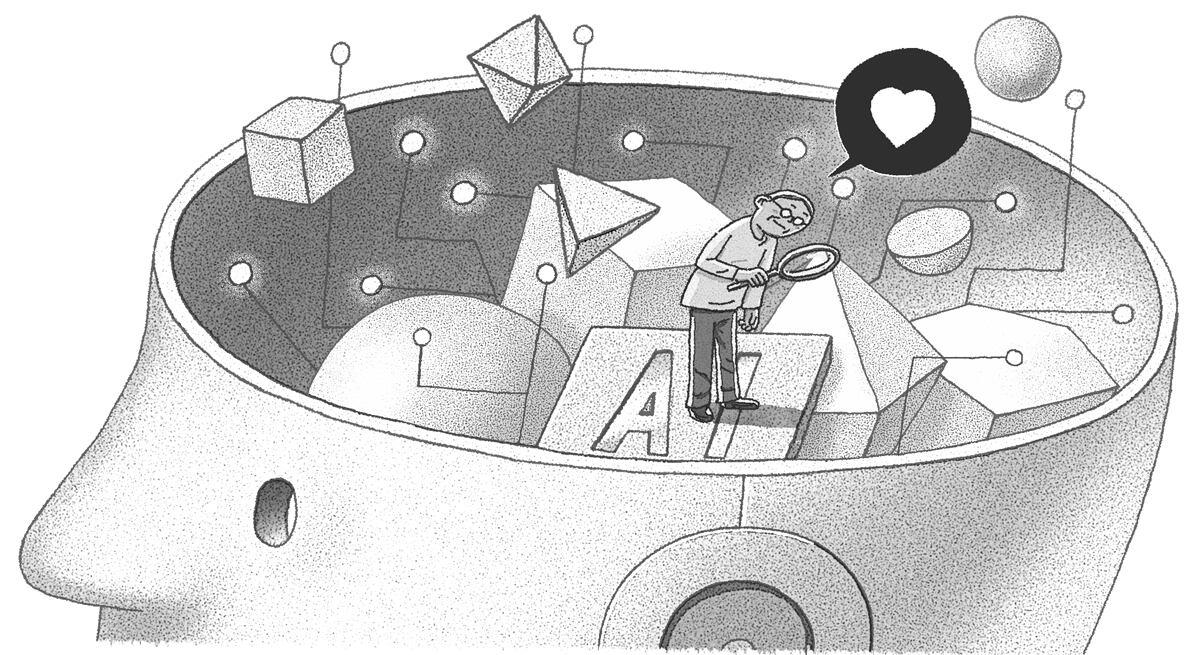Generative AI lacks human empathy, creativity

There are times when I think, “I am a lucky person.” This is because I retired from the university before generative artificial intelligence became widely used. Throughout my tenure, exams were conducted as open-book tests. Students would answer philosophy questions with no single correct answer while referring to books, smartphones, and laptops. They found essay-based exams, which transparently revealed their comprehension and reasoning skills, more challenging.
That era has passed. Generative AI like ChatGPT smoothly unravels answers to various questions, including philosophical ones. Large language models, which respond effortlessly, appear to be omniscient. Advanced features in the latest models have reduced the persistent issue of “hallucinations” (false information). They respond more fluently to English queries. Generative AI has also transcended language barriers, acting as a “competent personal assistant” that translates materials and even organizes schedules.
ChatGPT is a hot topic among friends. A friend experimenting with small-scale stock investments says ChatGPT’s skills rival those of securities company employees. A doctor friend struggles with patients who bombard him with questions based on knowledge from generative AI. Accountants and legal professionals also feel a sense of crisis.
In schools, the significance of simple knowledge transmission has faded. AI’s computational power and memory have long surpassed humans. A prime example is the post-AlphaGo landscape in the Go world, where human grandmasters were overwhelmed. Just as the “mysticism of Go,” once considered a symbol of human mental prowess, collapsed, universities as institutions of knowledge transmission now face an existential crisis.
Nevertheless, it was commonly believed that AI could not achieve the pinnacle of human intellect: “creative writing.” Far from it! Generative AI produces not only academic papers but also works that win literary awards. Its abilities in painting, composing music, and creating videos are rapidly improving. It is time to fundamentally reconsider the essence of creativity. In Hollywood, film and TV writers, fearing for their survival, launched a general strike.
I also consult generative AI. Whenever I have a question, I ask it immediately. ChatGPT is extremely useful for searching materials and cross-verifying information. Though I have always adhered to “solo work” throughout my life, it feels like I now have a “competent assistant.” It is true that the better one uses AI, the more labor productivity increases. Statistics show that even in companies, higher-ranking executives use AI more frequently. Society must prepare for the socioeconomic inequality that the “AI Divide”—the gap between those who can freely use AI and those who cannot—will bring.
However, humans “think” deeply and for long periods about things that AI cannot do. While writing this article, I asked ChatGPT, “What can’t an AI like you do?” After 24 seconds of “thinking,” its answer was too modest to be called a “thinking machine.” It was merely a mechanical output summarizing human-input answers, lacking traces of a “subject in anguish.”
AI is a product of probabilistic computation. Even if it passes the Turing Test by simulating conversation like an intellectual being, it cannot engage in “personal interaction” with humans. ChatGPT cannot “experience” the love and compassion of humans who sympathize with sentient beings in suffering. Unlike us, it has no “body.” There is a fatal limitation to this omniscient AI, a “21st-century sophist” that delivers knowledge for money: it cannot recognize its own ignorance or “perceive” its own identity.
What makes us truly human is love, empathy, and self-reflection on our own ignorance. AI cannot “understand” the human life that struggles to find meaning. Can AI “perform” these human acts? Would ChatGPT ever be able to die for “freedom”? Are we not elevating AI to the status of a “new god” that heals anxiety and loneliness?
※ This article has been translated by Upstage Solar AI.
Komentar
Posting Komentar